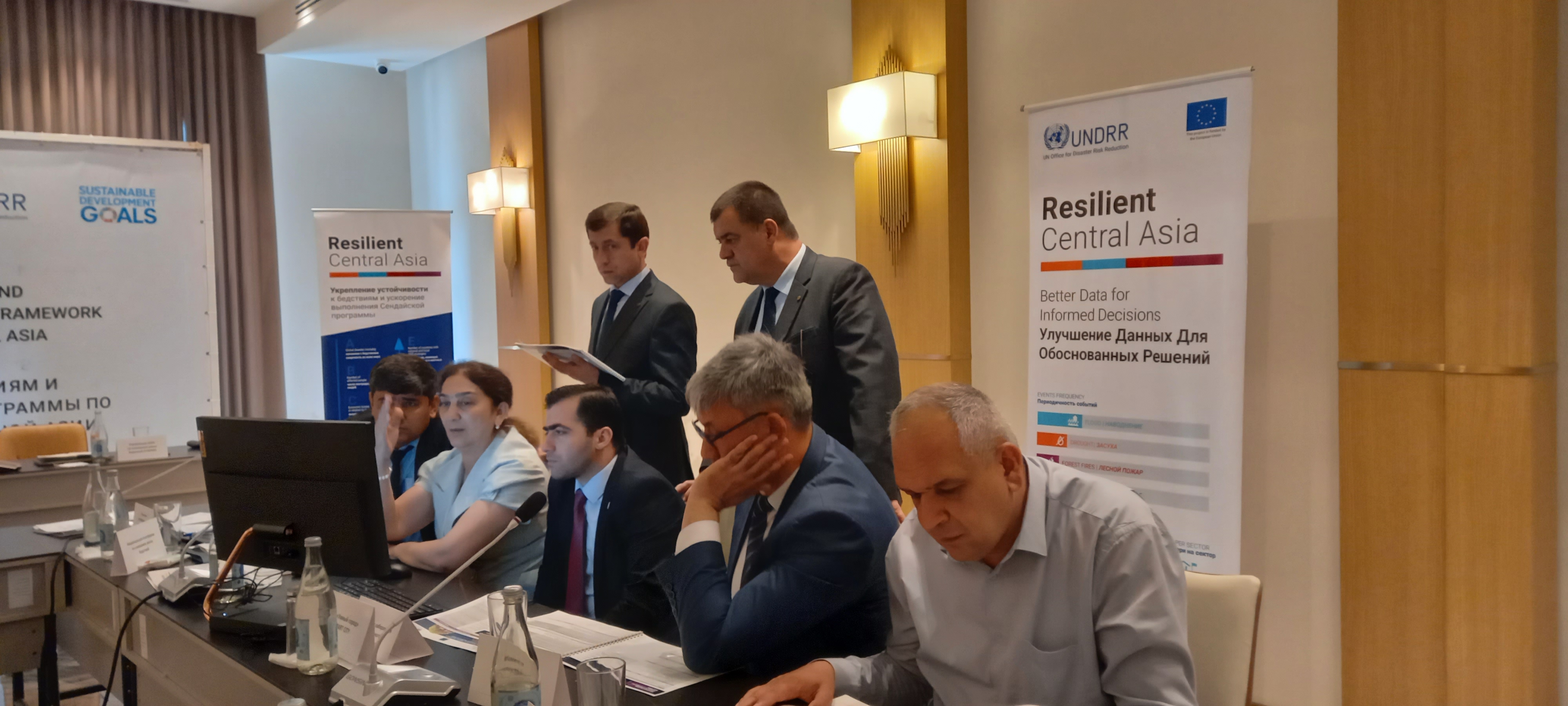European Union-funded project strengthens resilience of Dushanbe

DUSHANBE, 17-18 May – Through financial support from the European Union, the city of Dushanbe and the United Nations Office for Disaster Risk Reduction (UNDRR) conducted two self-assessment workshops focused on disaster resilience. The Disaster Resilience Scorecards, tools of the global initiative Making Cities Resilient 2030 (MCR2030), were used at the workshops to provide a set of assessments that allow local governments to assess their disaster resilience, and identify gaps and strengths, laying the foundation for the local strategy development.
The assessments were conducted within the frames of the EU-funded “Strengthening disaster resilience and accelerating implementation of Sendai Framework for Disaster Risk Reduction in Central Asia” initiative, as well as the membership of the city of Dushanbe in the MCR2030 initiative. The assessments are part of the longer-term process of disaster resilience assessments and local disaster resilience strategy development of the city of Dushanbe, in line with the Sendai Framework for Disaster Risk Reduction.
The self-assessments are being carried out by the members of the Technical Working Group established by the city of Dushanbe, consisting of representatives of the local and national governments. The workshops are hands-on exercises following an introductory meeting conducted earlier. The workshops were also attended by the EU Delegation to Tajikistan and UN partners.
In the first self-assessment workshop, participants worked on the “Preliminary Disaster Resilience Scorecard” assessment, aimed at establishing a baseline measurement of the city’s current level of disaster resilience as well as increasing awareness and understanding of resilience challenges across relevant stakeholders. The second workshop, conducted with the support of the World Health Organization, used the “Public Health System Resilience Scorecard”, aimed at strengthening the coverage of public health issues and consequences in disaster risk management.

The workshops successfully introduced participants to the foundations of local resilience building, and they were able to identify disaster resilience gaps and assess the current policy and practices for strengthening the city’s resilience.
The workshops were conducted at a pivotal time, just weeks before the Seventh Session of the Global Platform for Disaster Risk Reduction, the world’s foremost gathering on reducing disaster risk and building the resilience of communities and nations.
Background information
The EU-funded “Strengthening disaster resilience and accelerating implementation of Sendai Framework for Disaster Risk Reduction in Central Asia” initiative, delivered by the United Nations Office for Disaster Risk Reduction (UNDRR), aims to support countries in the region to implement Sendai Framework priorities. The project supports the strengthening of national and regional coordination in DRR and the development of national disaster loss accounting systems. At the local level, the project supports the development of disaster resilience strategies in capital cities, and community level disaster risk reduction. The EU has committed EUR 3,750,000 for the three-year implementation of this initiative.
MCR2030 is a unique cross-stakeholder initiative improving local resilience by making cities safer, preventing risks and promoting innovation and investments. Building on the Making Cities Resilient Campaign which began in 2010, MCR2030 welcomes cities, local governments as well as any other parties wishing to help cities prosper through advocacy, knowledge-sharing and city-to-city networks.
For additional information please contact
Delegation of the European Union to Kazakhstan, at: [email protected]
Mr. Abdurahim Muhidov, UNDRR Regional Programme Coordinator, at: [email protected]